In an apocalyptic sci–fi film set in the near future, an ambitious deputy press secretary of a government agency is spending time with his mistress in a Malibu house just when the System of National Security fails. Since he is a government spokesman, it is up to him to speak to the nation about the nature of this catastrophe.
The Sun, the Sun Blinded Me
Meursault, the main character from The Stranger by Albert Camus, inciden tally enters a story he thought had ended and had no significance to him. He shoots at a man, at a lying corpse, at emptiness and becomes blinded by the sun. In the film, the moment of the killing is postponed for a moment by a vision of life in which responsibility for another person is taken. When standing over the Stranger, the main hero of the film must choose. The world starts to dawn on him with too great a force, and the fate of the Stranger becomes a burden. Providing a meaningful commentary on the refugee crisis and the wave of xenophobia that followed in its wake, this is another stunning work by Anka and Wilhels Sasnal – one of the most daring authorial tandems in contem porary cinema, namely Anka and Wilhelm Sasnal. The film draws inspiration from the cardinal work of existentialism, reinterprets it and uses its simple storyline as the vehicle for a profound analysis of the fear of everything strange.
LoveTrue
Is there such a thing as true love? An artful exploration of that question guides the narrative of the latest feature–length film by Israeli director Alma Har’el. Travelling to Alaska, Hawaii and New York, she meets three couples at different stages of their lives and relationships to discover the movement, rather than the meaning, of true love. Using non–actors to act out significant moments from their pasts and play out possible versions of their futures, LoveTrue is an ode to the beautiful potential of partnership and a challenging confrontation of its complexities. The film is a journey through rather than an answer to the questions it asks; a journey that offers profound insight into our common quest to find love and our redefinition of its meaning as we grow.
Lo and Behold, Reveries of the Connected World
In Lo and Behold, Reveries of the Connected World, the legendary auteur and documentarian Werner Herzog (Grizzly Man, Cave of Forgotten Dreams) chro nicles the virtual world from its origins to its outermost reaches, exploring the digital landscape with the same curiosity and imagination he previously trained on earthly destinations as disparate as the Amazon, the Sahara, the South Pole, and the Australian outback. Herzog leads viewers on a journey through a series of provocative conversations that reveal the ways in which the online world has transformed how virtually everything in the real world works – from business to education, from space travel to healthcare – as well as the very heart of how we conduct our personal relationships.
In California
First a concentrated gaze, then fascinated observation, and finally prying that turns observation into obsession: a look can have a surprising number of nuances. Mathilde is an aspiring ballet dancer determined to fight for her place in the sun. Charles is a film student searching for his first grand subject until he realises that he has been living it all this time. An unusually open tale of a complicated relationship between two young people trying to find a niche abroad where Mathilde ventured to pursue her dreams of becoming a prima ballerina and Charles followed her devotedly. The film builds up viewer‘s expectations, only to subvert them dramatically. Appearing first as a poetic declaration of love and later as a study on self torture and accepting pain, the film keeps on revealing newer, deeper and more surprising layers.
Tramontane
The film is a search for self–identity under special life circumstances and in a special social environment. Rabih, a young blind man, lives in a small village in Lebanon. His life unravels when he applies for a passport and discovers that his ID card is a forgery. Roaming through rural Lebanon in search of a record of his own birth, he meets people on the far fringes of society who tell their own stories, open further questions and give him minor clues about his identity. He encounters a nation incapable of telling his or its own history. Sounding political resonance between the blind man’s intimate story and the Lebanese countryside, the picture articulates larger political and cultural themes that infuse the story. Set and shot entirely on location in Lebanon, Tramontane teems with strong emotions while avoiding pathos. The role of the young blind man is played masterfully by Barakat Jabbour.
The Swallow
27–year–old Mira travels from Switzerland to Iraqi Kurdistan to look for her father she has never met. All that she has is an old letter and a faded picture. She is all excited and full of hope; little does she know that she is embarking on a journey that will change her life forever, a journey to the breath–taking landscapes of Kurdistan but also to the political reality teeming with conflicts, which the film portrays from a completely new perspective. Once in Kurdistan, Mira encounters terrorism, crimes, and street justice but also love. The film depicts two of life’s greatest tragedies: not having one’s wishes fulfilled and having them fulfilled. Shot in Switzerland and Kurdistan in 2014, the picture is kind of a reverse take on the life of its maker, Mano Khalil, who was born and later imprisoned in Syria and then found asylum in Switzerland.
One Week and a Day
A story of the disparate ways in which a married couple deals with the death of their son, One Week and a Day refers to the traditional Jewish week of mourning, known as Shiva, which follows immediately after the funeral of the deceased and takes place at the home of an immediate family member. The wife, Vicky, yearns for order and routine, which means going back to the primary school where she teaches while the husband, Eyal, refuses to return to work just yet. Instead, he goes to the hospice where the son, Ronnie, spent his last days under the pretext to find a blanket they left there but comes back with a bag of Ronnie’s leftover medicinal weed and embarks on a marijuana–fuelled journey of existential exploration with a stoner neighbour. Part of the Critics’ Week selection at the Cannes IFF this year, the film is both confidently directed and superbly played as director and actors found a perfect balance between comedy and drama, blending tears with laughs.
Worldly Girl
Giulia is a member of the Jehovah’s Witnesses community. She is academically gifted but her education, aspirations and personal relationships are repressed by her family’s rigid habits guided by strict religious beliefs. Suspended in time and built on rigorous and sacred scriptures, Giulia’s ancient world fiercely excludes anyone who doesn’t belong. When she meets Liberto who works in her father’s factory, Giulia finds herself rebelling against the strictures placed upon her. She discovers there may be another destiny awaiting her, one she can choose for herself. Libero’s world is inhabited by those who make mistakes, those who seek other prospects, and those who love unconditionally. What follows is a pure and inevitable love story, which leads to Giulia being completely cut off from the religious world she used to belong to. A tender portrayal of young love at the crossroads, Wordly Girl premiered at the Venice IFF.
Quit Staring at My Plate
A feature debut by Croatian director Hana Jušić tells the story of a 24– year–old woman from a low–class family who comes into her own after her appalling father’s stroke. Marijana’s life revolves around her family. They live all crammed up in a tiny apartment, driving one another crazy. After a stroke leaves her controlling father completely bedridden, Marijana takes his place as the head of the family. Soon enough, she is working two jobs to keep things afloat while her mother and disabled brother do their best to scupper the ship. Driven to the edge, Marijana finds comfort in seedy sex with random strangers and this taste of freedom leaves her wanting more. Now that she has finally found freedom, she doesn’t know what to do with it. The film has been made in a hyper realistic manner that celebrates the ugliness of white trash lives with specific black humour and strong performances
My Life as a Courgette
My Life as a Courgette is a stop–motion animation feature film, a tender and poetic coming–of–age story. After his mother’s sudden death, a 9–year–old boy nicknamed Courgette is befriended by a kind–hearted police officer, Raymond, who accompanies the boy to his new foster home filled with other orphans his age. Courgette struggles at first to find his place in this strange, at times hostile, environment. Yet with Raymond’s help and his newfound friends, he eventually learns to trust, finds true love and at last a new family of his own. “I wanted to adapt Gilles Paris’ book because I wanted to make a film about children that addresses maltreatment of children and remedies for abuse in today’s world; an entertaining film that makes you laugh and cry, but especially a firmly committed film that happens in the here and now and tells you about the strength of resilience amongst a group of friends, advocating empathy, comradery, sharing, and tolerance,” said the director.
Mellow Mud
A feature–length debut by writer–director Renārs Vimba is a delicate drama about the often anguished time of life handled with unique sensitivity. Although a debutant, Vimba already shows a mature visual style and a sense for discreet but effective pulsing emotions. Mellow Mud tells a story about Raja (17) and her brother Robis (12) who live with their grandmother Olga because their father died and mother has gone to look for work in England. The domineering Olga plans to sell the countryside property against the children’s will but the situation changes after her accidental death. Afraid of being sent to children’s home, Raja and Robis bury the granny in the apple orchard and decide to find their mother. This family story captures the much–topical issue of economic migrants and represents it from a rather unusual viewpoint, examining not the ones who have left but those who are left behind and want to associate their future with their homeland. The film premiered in the Berlinale’s teen–focused Generation 14–plus section.
Dogs
A drama thriller set by the Ukrainian border in rural Romania. Roman, a young man from the city, arrives in a remote village to sell the land he has inherited from his grandfather. To his surprise, he discovers that the property is vast and almost completely isolated from the civilised world. While preparing the sale, Roman is confronted with a series of unusual events: the locals seem to avoid him, suspicious men in cars meet on his land every night and there’s a general sense of threat that is never materialised. Roman’s uneasiness reaches new levels when his girlfriend comes visiting uninvited, making him feel more vulnerable than ever – not because she might be in danger but because she is an unwanted witness to his inability to control the situation. Defying everyone’s advice, Roman carries out his plan to sell the land. But, as carefully as he is planning his escape, he is unable to estimate the true evil nature of the people he is dealing with.
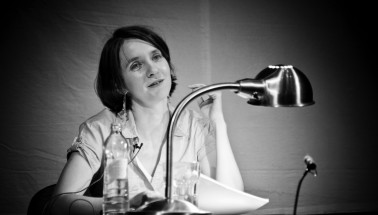
Nóra Ružičková
Nóra Ružičková is active in the field of visual art and literature. She works as lecturer at the Department of Intermedia of the Academy of Fine Arts and Design in Bratislava where she heads the Image/Sound/Text and Context studio. In her art projects she uses various means and forms of expression, including text, video, sound installation, collective performance, photography, objects, etc. In recent years she focused particularly on researching institutionalisation and categorisation of (not only) art, relations between image and text and the category of dissimilarity. Many of her projects are based on collaboration with other artists as well as people outside the realm of art.
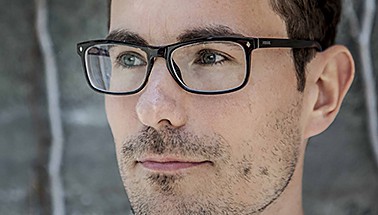
Štěpán Hulík
Born in 1984 in Uherské Hradiště, Štěpán Hulík graduated from the Department of Film Studies at the Faculty of Arts of Charles University and completed his studies of scriptwriting and dramatic art at the Film Academy of Performing Arts in Prague. For his first literary work, Cinema of Oblivion (Kinematografie zapomnění, 2011), which mapped out the condition of Czech cinema during the infamous normalisation period, he won the Magnesia Litera award. As a screenwriter, he debuted with Burning Bush (Hořící keř, 2013), a historical TV mini-series produced by HBO Europe and directed by Agnieszka Holland for which he received the Czech Lion award. He continued his collaboration with HBO Europe this year by writing a screenplay for the eight-part crime mini-series, Wasteland (Pustina).
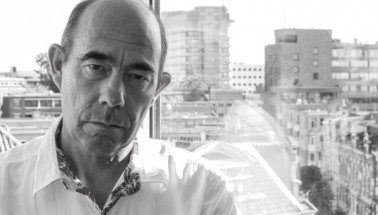
Noud Heerkens
An independent filmmaker, teacher and occasional curator and producer, Noud Heerkens originally studied architecture at the Delft University of Technology but in 1978 he began to steer toward making films and installations that have been presented at various national and international platforms.
Heerkens has received international recognition for films such as Re-action in A (1979), Man in Motion (1985), Private Story (2000) and Last Conversation (2009). He has made a series of dance-fiction films in collaboration with dancer and choreographer Ton Lutgerink. In his film projects, he explores the limits of the film medium and crossovers between film and other disciplines. A theme that Heerkens likes to delve into is the solitude of a postmodern man.
Most of his films are part of the collection of EYE Film Museum in Amsterdam. These works belong to different genres ranging from experimental cinema to dance film to road movie.
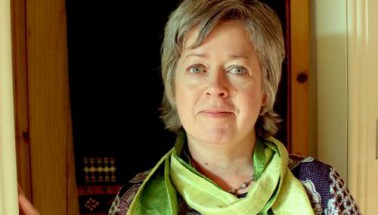
Úna Feely
Úna Feely has worked as a film programmer for over twenty five years, working for a number of international festivals and events. She co-founded IndieCork Festival, a shareholder-owned festival of independent cinema in Cork, Ireland, in 2013. Driven by desire to represent Irish filmmakers internationally, she recently co-founded Green Ray Film Agency with Mick Hannigan, Programming Director at IndieCork.
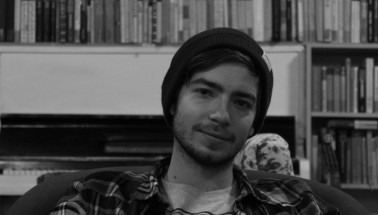
Norbert Franko
Norbert Franko currently pursues his Master’s Degree from the Department of Culturology at the Faculty of Arts of Comenius University in Bratislava. As part of his academic mobility, he has also attended several seminars at the Department of Film Studies of Charles University in Prague. Having studies culture and art for five years, he perceives cinema primarily theoretically, from the viewpoint of different scientific disciplines such as philosophy, sociology, etc. Every year, he participates in a number of film festivals in Slovakia and in the Czech Republic, either as a visitor or as a volunteer.
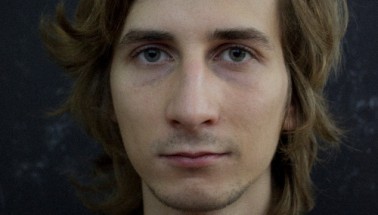
Juraj Mydla
Juraj Mydla is a student of the fourth year of the Department of Intermedia at the Academy of Fine Arts and Design in Bratislava where he attends the Studio IN. In his studies, he is particularly interested in shaking up or questioning the deep-rooted stereotypes that ensue from the organisation of society and language. His means of expression include predominantly digital graphics and video art.
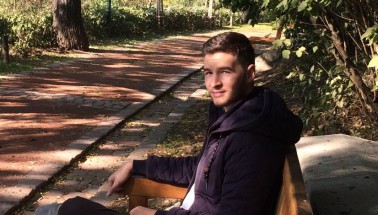
Adam Straka
Adam Straka works on acquiring a Bachelor’s degree from the Department of Audio-Visual Studies at the Academy of Performing Arts in Bratislava. In his grade theses, he has focused on sociological or philosophical aspects of films. Currently he explores European cinema rather intensely as his Bachelor’s thesis examines recent development trends at three largest European film festivals, namely Berlin, Venice and Cannes. At the same time, he helps with alternative distribution of authorial documentary films as part of a project entitled Documentary on Wheels.
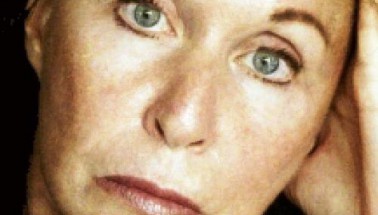
Canan Gerede
Canan Gerede was born in New York in 1948. She studied theatre in
Caracas, Venezuela, and in New York at the American Academy of
Dramatic Arts. Between 1978 and 1982, she worked as an assistant of
Atıf Yılmaz and Yılmaz Güney and during the time when Yılmaz Güney
was in prison Gerede helped to produce The Way (Yol) which won the
Golden Palm at Cannes. In 1983, she wrote a screenplay for a German
film, Germany under Thorns, and became one of producers for Thomas
Harlan’s film, Wundkanal.
Since 1987, Gerede has directed several documentary films such as
Pass the Bludwurst Please (1987), Abidine, Can You Paint the Portrait of
Happiness? (Abidine, Sen Mutluluğun Resmini Yapabilir misin?, 1988)
or Women Behind the Veil (Peçenin Ardındaki Kadınlar, 1993). In 1991
her first feature-length film, Robert’s Movie, was screened at the Cannes
IFF as part of the Critics’ Week. She was the first woman to receive the
Best Director award for her second feature film, Love is Colder Than
Death (Aşk Ölümden Soğuktur), at the 32nd Antalya Golden Orange
Film Festival in 1995. Gerede lives and works in Istanbul and Paris.
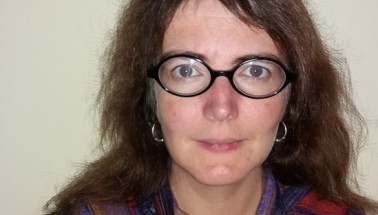
Monika Mikušová
Monika Mikušová completed her studies of film science at the Academy of Performing Arts (VŠMU) in Bratislava and her studies of visual art at Comenius University in Bratislava. Currently she works as script editor of acquisitions for the Slovak Radio and Television and simultaneously lectures at the Department of Audio-Visual Studies of VŠMU. At the same time, she delves into popularising cinema and refining the public perception of it. She has co-authored an electronic textbook for university students, Chapters from the History of World Cinema, and the Kino-Ucho (Kino-Ear) radio cycle. Most recently, she began to work on a film education project for secondary school pedagogues and students while continuing in her activities as a curator and freelance journalist. In the past, she worked as curator at the Central European House of Photography and as visiting lecturer at the Academy of Fine Arts and Design in Bratislava.
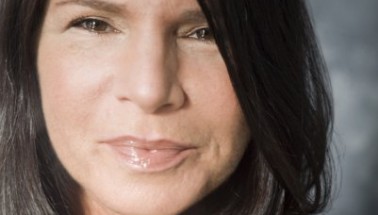
Pamela Cohn
Pamela Cohn is an American filmmaker, writer and curator currently dividing her time between Berlin, Germany and Prizren, Kosovo. She works as a freelance documentary story consultant and serves on several international screening and selection committees for American, European and UK festivals, pitch forums, and film funds. Pamela is a regular contributor to BOMB Magazine’s arts blog, FILMMAKER Magazine, Senses of Cinema, and The Calvert Journal, among others. She is on the selection committee and programmes for the International Documentary and Short Film Festival – DokuFest in Kosovo, and is a programmer-at-large for several other festivals and exhibition spaces.
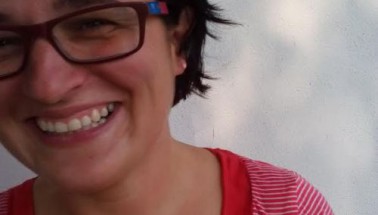
Viera Čákanyová
Viera Čákanyová graduated from the Academy of Performing Arts in Bratislava where she currently pursues her Doctor’s degree, majoring in scriptwriting, as well as from the Academy of Performing Arts in Prague, majoring in documentary filmmaking. Her student films, Under Underground (2006), Piraňa (2007), Alda (2009) and 100 Days (100 dní, 2009) have received several international awards. In her work, she often likes to dwell on the border between different genres, particularly between fiction and documentary film; her most recent picture, Letiaci kôň, is an animated documentary. Outside her own projects, Viera also works as script editor and editor for independent film productions
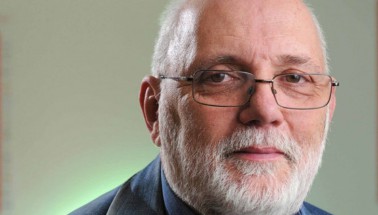
Nenad Puhovski
One of the prominent personalities that helped shape modern Croatian documentary film, Nenad Puhovski completed the Faculty of Philosophy and the Academy of Dramatic Arts (ADU) in Zagreb. He has directed over 250 productions for stage, film and television, for which he received a number of national and international awards. Currently, he works as a Professor of Documentary Directing at ADU where he has taught and mentored young professionals from Europe, Asia, South America, the Near East, Africa, and USA.
In 1997 he founded Factum, a leading independent documentary production company in Croatia. Under his management, it has produced over 70 documentary films that were screened at more than seventy festivals. In 2005 he founded ZagrebDox, the largest international documentary film festival in the region; he has been its director ever since. Nenad is a member of the European Film Academy.
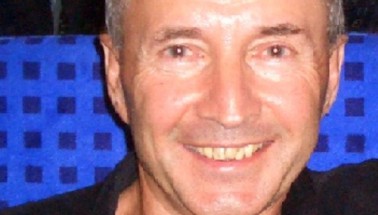
Andrzej Fogler
A film expert and critic, a cultural sociologist, a specialist in English language and literature, and a doctor of humanities, Andrzej Fogler has been working for the Polish section of FIPRESCI for over 25 years. He helps organise and lectures at international conferences, festivals and seminars. He has written two books and over 100 articles and essays on film and audio-visual culture.
Fogler has been a jury member at many international film festivals and has sat on international panels that selected films for them. He is a regular contributor to magazines such as Kino monthly or Magazyn Filmowy as well as to the Polish Filmmakers Association’s film portal.
Since 2008 he has worked as co-editor and coordinator of “Best Books on Film”, an international campaign by FIPRESCI (facebook.com/bestbooksonfilm).
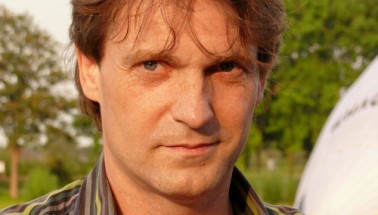
Ulrich Wimmeroth
Born in Cologne, Germany, Ulrich Wimmeroth has worked for over two decades as a journalist and film critic for a variety of cinema magazines, newspapers and websites such as Kino&Co, cinezone.de, filmabriss.com and filmfutter.com. Throughout his university education in Cologne and Bonn during the 1990s, he specialised on Asian and East European cinema. Today, he enjoys watching a Giallo as much as a big budget mainstream movie. For his regular columns he does not only review the newest films from around the world but also likes to dig in the bargain bin for the most obscure findings.
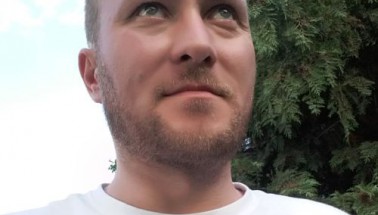
Matúš Kvasnička
In 2002, Matúš graduated from the Department of Film and Television of the Academy of Performing Arts in Bratislava, majoring in film science. During his studies, he occasionally contributed to various cultural periodicals, for instance the Film.sk cinema monthly or the Kultúrny život weekly. In 2003 he joined the Pravda daily’s culture desk, which he currently manages.
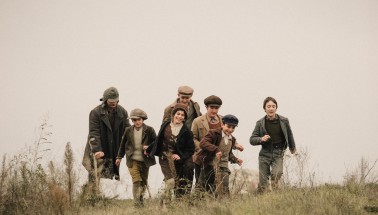
Opening and Closing Film
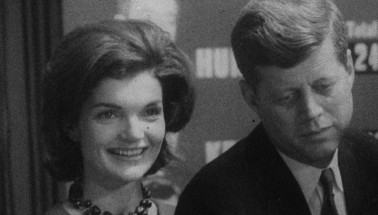
Flashback: US Election
It would be „elections like no other before“, most commentators agreed in debates on perhaps the most closely scrutinised political event of this year. Whatever the outcome of the U.S. presidential election is, one thing seems for sure: their reverberations will sound longer than usually and they will keep analysts busy finding all the possible and impossible angles. Our contribution to this discourse is the mini-retrospective of U.S. presidential elections as captured by documentary filmmakers, offering a flashback at their modern history just days after its latest chapter has been written. That modern history has been strongly affected by the onset of the means of mass-communication, including film and television, which irreversibly changed the style of political campaigning and placed all candidates under close public scrutiny. Candidates’ “camera readiness” has become a vital prerequisite for success; ever since, even a single unfortunate gesture may tilt the outcome of elections one way or another.
Ranging from Primary (1960), a canonical work of direct cinema, to remarkable Election Day (2007), this subtle programme section may also serve as an introduction to the rich tradition of American documentary film, or at least one of its important focuses: politics.
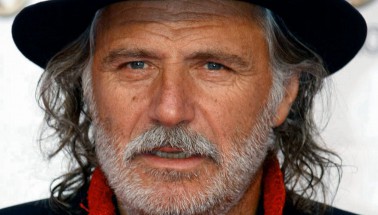
Tribute: Rade Šerbedžija
Born in 1946 into an ethnic Serb family living in Croatia, actor, director and musician Rade Šerbedžija was among prominent film and theatre actors in former Yugoslavia. In 1969, he graduated from the Academy of Dramatic Arts of the University of Zagreb and then worked as a theatre actor in the City Drama Theatre Gavella and at the Croatian National Theatre in Zagreb. One of those actors who have mastered the art of sovereign acting so they are able to respond to various demands of theatre and film with flair and ease, Šerbedžija has a broad register of acting techniques, excellent diction, discipline in building characters and the capacity to carry convincingly a variety of character “masks”, which makes him able to play a wide range of roles, from classic to contemporary, from tragic to comical, from grand to genre. Šerbedžija is a true “renaissance man” of our time as he is successful at many different art disciplines: theatre and cinema acting; directing (12 stage plays and one film); Maecenatism (he founded Ulysses Theatre on the Brijuni islands); mentoring (he is acting teacher at universities in Zagreb and Novi Sad); writing (he has published four books
of poetry); and music (he has released four albums). In theatre, he has outstandingly rendered Peer Gynt, Don Juan, Hamlet, Richard III, King Lear, or Oedipus. Along with Vanessa Redgrave, he founded a theatre that has staged plays such as Brecht in exile, The Liberation of Skopje, Smoke or Opera Sarajevo. He has appeared in more than seventy films shot by most prominent Yugoslav and Croatian directors such as Fadil Hadžić, Krešo Golika, Živojin Pavlović, Vatroslav Mimica, Rajko Grlić, Goran Marković, Miša Radivojević, Lordan Zafranović or Anton Vrdoljak. He has delivered some of his finest performances in Crveno klasje (1970), Hajka (1977), Bravo maestro (1978), Variola Vera (1982), Kiklop (1982), Zadah tela (1983), Una (1984) and Život je lep (1985). After a world success of Macedonian film, Before the Rain (1994), in which he played the leading role, he has been cast in films shot by first-class world directors such as Stanley Kubrick (Eyes Wide Shut, 1999), Philip Noyce (The Saint, 1997), Clint Eastwood (Space Cowboys, 2000), John Woo (Mission: Impossible II, 2000), and Francesco Rosi (The Truce, 1997). He has starred alongside John Turturro, Tom Cruise, Glenn Close, Val Kilmer, or Elisabeth Shue. This year, the Bratislava International Film Festival will honour Rade Šerbedžija by bestowing upon him the Award for Artistic Excellence in World Cinema.
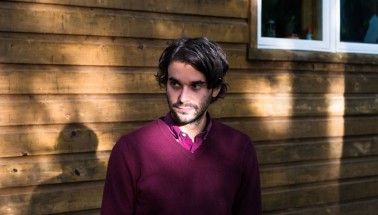
Profile: Alex Ross Perry
Alex Ross Perry is one of the most accomplished figures of the
young generation of American independent cinema, although his path to glory has led through Europe, more precisely IFF in locarno, Switzerland. He has become known for making small and seemingly inconspicuous films on a shoestring budget that tend to attract cinemagoers who appreciate tight writing. His critics often reproach him for picking selfish and unpleasant people for main characters, but he has rebutted that they are rather people who are going through difficult times in their lives. That is why they cannot be so easily condemned and why he strives to depict them with as much empathy as possible. While Perry relishes rather in drama, he always serves it with bigger (Impolex, The Color Wheel) or smaller (Queen of Earth) dosage of humour. Most importantly, though, every one of his motion pictures is distinguishably different. Perry is a versatile auteur who not only writes and directs him films (he has also produced three of them, edited two and even rendered the main character in one) and who works with a stable team of filmmakers – for all, let us mention Sean Price Williams, a brilliant and still underrated DOP.
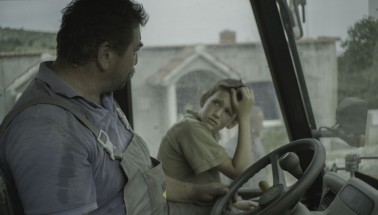
Focus: Croatia
Croatian filmmakers have always made a strong contribution to what used to be called Yugoslav cinema. Among the most successful were directors like Branko Bauer, Vatroslav Mimica, Ante Babaja, Krešo Golik, Krsto Papić, Rajko Grlić or Lordan Zafranović. In the 1970s, so called Zagreb School of Animated Film rose to international fame, especially after Dušan Vukotić won the Academy Award for his animated short, Surogat, in 1963. Since the early 1990s when Croatia became an independent country, it went through a cascade of political changes that have affected society, culture and, inevitably, filmmaking. The list of most distinguished and internationally recognised figures of the new generation of Croatian filmmakers include Vinko Brešan, Zrinko Ogresta, Branko Schmidt, Ognjen Sviličić, Dalibor Matanić, and Arsen A. Ostojić. Over the past decade, Croatian cinema has experienced a significant growth, largely thanks to the excellent performance of the Croatian Audiovisual Centre (HAVC). Solid long-term programming and financial policies have allowed HAVC to encourage, in a new and creative way, the production of films that have scored success at home and abroad. Several Croatian films have made it big internationally in the last three years: A Stranger by Bobo Jelčić premiered at Berlinale 2013; The High Sun by Dalibor Matanić won in Cannes 2015; Zrinko Ogresta’s On the Other Side made it to Berlin’s Panorama this year; The Constitution, a new film by veteran filmmaker Rajko Grlić won Grand Prix at this year’s Montreal IFF; and young director Hana Jušić won the FEDEORA award at Venice 2016 for Quit Staring at My Plate (Ne gledaj mi u pijat). To reflect the recent surge in the qualitative and quantitative output of Croatian cinema, the Bratislava International Film Festival not only decided to dedicate an entire section to this small but cinematically prolific country but also to bestow the Award for Excellence in World Cinema to internationally acclaimed Croatian actor Rade Šerbedžija.

Lexicon: Colour
Last year, the Bratislava IFF introduced lexicon, a section that has an ambition to explain in plain language various terms and issues from the realm of cinema to regular cinemagoers. This year, the section will focus on colour in film. Thanks to motion pictures that are over 100 years old, we can still see that from ancient times of cinema, filmmakers strove to capture colour on celluloid. Festival-goers will see various demonstrations of how colour can help in telling the story, how it can serve in creating symbolic meanings and reveal more about characters or scenes, or how subtly (and ironically) can directors handle colour. Short films that complement the section will direct film buffs’ attention at technical aspects of colour film stock or different techniques of recording colour on film.

Topic: City
This year, the festival’s main theme focuses on the city both as real and cinematic space, and also the city as a way of life that is conspicuously often characterised by the paradox of an individual’s loneliness amidst a place swarming with people. living in a city seems to defy the human nature, yet at the same time it abounds in peculiar devouring attractiveness. Our choice of this year’s leitmotif has been strongly affected by the identity of our festival, which is basically an urban festival that constantly seeks its place in the ever-changing landscape. The section will present a broad palette of films, ranging from popular stories about the life in the city to film essays to modern variations of urban symphony, a favourite genre of film avantgardists. Complementing the festival’s pivotal theme will be a series of side events, open discussions and guided tours of Bratislava that will elaborate and reflect on the theme outside the “safe zone” of festival cinemas.
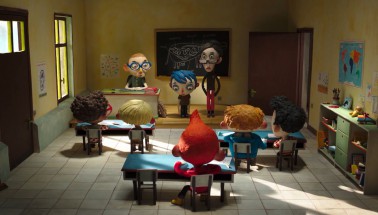
Europa Special – LUX Prize
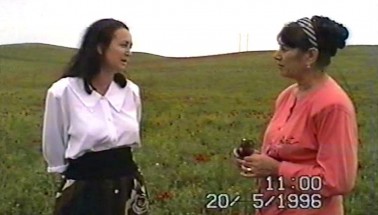
Made in Slovakia
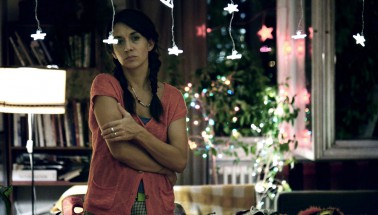
Europa
Telling the ever-evolving story of the geographical area we are part of, the section presents the best of contemporary European cinema. It also provides a dramaturgical platform to observe what issues attract European filmmakers’ attention and how the idea of European togetherness is reflected by motion pictures that are created in our cultural environment. Supporting multi-national co-productions is among typical features of the European Union’s audio-visual policy, which is why it makes more and more sense to think of European cinema as one organic whole that makes borders between particular national cinemas gradually disappear.
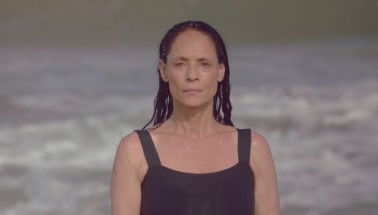
Cinema Now
Pressing issues seen from the global perspective and interpreted by the most vocal authors of contemporary cinema – that is Cinema Now, a section that presents an instant overview of the most remarkable and most progressive pictures released in the past 12 months. Some of them have already created a furore at world’s most prestigious film festivals while others still wait to be discovered like diamonds in the rough. The section puts ambitious debutants next to established filmmakers and makes promising cinema supernovas shine alongside fixed stars of the industry.

Shorts Competition
Brevity, pithiness, the art of miniature – the best short films share the rare ability to use the shortest possible timeframe to the absolute full to tell the story and to provoke emotions or notions that continue to evolve within the audience long after they have left the cinema. To some filmmakers, shorts are an important stepping stone at the beginning of their careers; however, there are those who choose the format deliberately, as they appreciate its features and are able to capitalise on them. Our competition of short films is dedicated to filmmakers who have learned to enjoy artistic freedom in a seemingly restrainful format.
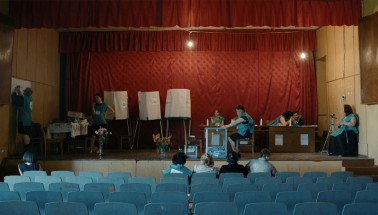
Documentary Competition
Inventive cinematic language, pressing social issues, real people and stories that leave nobody indifferent – this in a nutshell is our competition of first and second documentary films, which offers cinemagoers an opportunity to get acquainted with contemporary documentary film in its creative variety. Ranging from engaged pictures to bewitching portraits to film essays to artworks bordering on non-fiction and experimental film – our competitive selection strives to paint the reality in broad brushstrokes of available genres year by year.
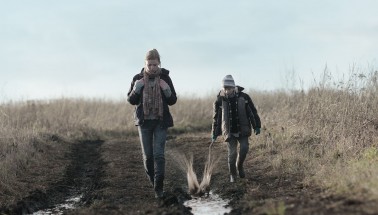
Fiction Competition
Focusing the limelight on new talent within the industry that may well be the future stars of world cinema – the traditional international competition of first and second feature films is rooted in our festival’s ambition to discover fledgling filmmakers at the beginning of their careers and give them space on a prestigious international stage. Our selection of competitive pictures always strives to present a balanced mixture of remarkably mature and youthfully radical artworks, which adumbrate the rise of exceptional talent that is worth keeping track of.